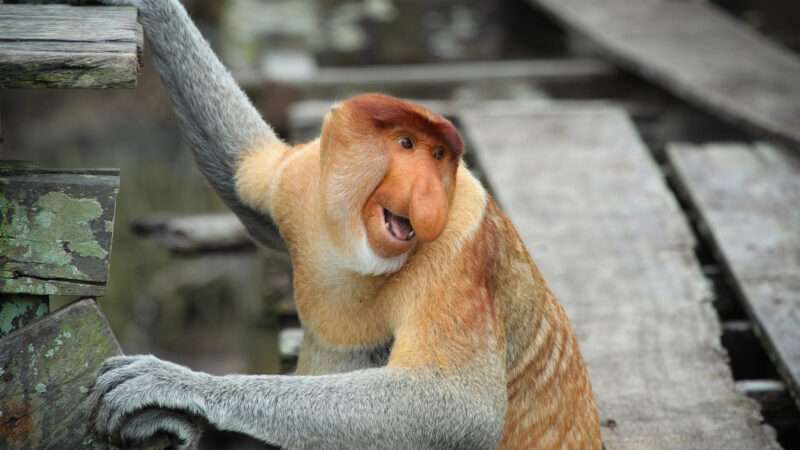
The public health community has many competencies. Reading the room is not one of them.
Professionals in the field responsible for identifying the origins of infectious diseases and preventing their regional and global spread say that monkeypox and its geographically labeled variants require a new name given the murky origins of the latest worldwide outbreak of the virus.
The World Health Organization (WHO) agrees, saying this week that it would start the search for a less offensive name right away.
"WHO is also working with partners and experts from around the world on changing the name of monkeypox virus, its clades and the disease it causes," said WHO Director-General Tedros Adhanom Ghebreyesus at a Tuesday press conference. "We will make announcements about the new names as soon as possible."
His comments came a few days after an international collection of infectious disease researchers issued an open letter calling for a "neutral, non-discriminatory and [sic] non-stigmitizing" naming scheme that forgoes the use of the term monkeypox and the "West African" and "Central African" or "Congo Basin" clades.
"In the context of the current global outbreak, continued reference to, and nomenclature of this virus being African is not only inaccurate but is also discriminatory and stigmatizing," these researchers wrote.
Their letter takes particular exception to the media's use of photos showing African monkeypox patients to depict the effects of the disease. And while they admit that the origin of the current global outbreak is still unknown, these researchers said that the use of African-named clades obscures the likely fact that "cross-continent, cryptic human transmission" has been going on for much longer than expected.
Changing the name would combat the possible, but not proven, "narrative in the media and among many scientists that are trying to link the present global outbreak to Africa or West Africa, or Nigeria" they write.
Up until this latest, global outbreak, monkeypox had most commonly infected people in Africa, often after they came into contact with infected animals—including both rodents and monkeys. According to WHO, the first non-African outbreak didn't occur until 2003, when infected rodents imported from Ghana to the U.S. lead to an outbreak that infected 70 people.
The African origins and predominance of the virus, and the fact that primates can spread it to humans, might seem to the casual observer justification for sticking with the original monkeypox name and Africa-specific clades. The rarity of cases outside of Africa might also explain why images of African monkeypox patients dominate in the media. If images of non-African monkeypox patients were more common, it's possible we'd be arguing over whether African victims of the disease were being ignored.
Naming diseases after the places in which they were discovered has been controversial among public health professionals for years. The aforementioned researchers' letter references a 2015 WHO document that lays out best practices for the naming of new human infectious diseases. The document specifically recommends against using places, animals, and occupations to name new diseases, and gives monkeypox as an example of a poorly named disease.
Nevertheless, the WHO best practices document also recommends against trying to rename diseases that already have a common name in circulation. That would seem to recommend against scrapping the already well-established monkeypox.
The aforementioned researchers' letter suggests creating the placeholder hMPXV in lieu of monkeypox and replacing the "West Africa" and "Central African" clades with the charming names A.1, A.2, etc.
That also goes against the conclusion of a WHO-assembled working group on naming COVID variants. That group recommended against alphanumeric naming schemes, as they "result in complex names that are liable to misreporting and misunderstanding."
The argument that naming variants by geographic locations is stigmatizing and discriminatory also misses the mark. Researchers say that it's inappropriate because we don't know the origins of this latest outbreak. Yet because the origins are currently a mystery, preemptively changing the name to avoid associations with Africa also seems premature, and, if anything, designed to promote an alternative, also unproven non-African origin story for this latest outbreak.
Changing the name of viruses and variants to avoid stigmatization of countries and regions didn't work too well during COVID. When a new COVID variant was discovered by South African researchers, the Biden White House scrupulously referred to it not as the South African variant, but as B.1.1.529 or Omicron. It also quickly banned travel from the country.
While geographic names for diseases might make a few tourism bureau officials' jobs harder, it hardly seems as damaging to a country or region's reputation as some public health officials make it out to be. People are still willing to vacation in Barcelona despite the fact that Spanish Flu killed more people than the Kaiser.
The sudden concern over monkeypox omits its primary utility: it's funny-sounding and therefore memorable. Its uniqueness encourages people to pay attention to the virus, which public health officials should want. The fact that there's been so much coverage of a global, but nevertheless relatively minor, outbreak surely has something to do with the name. If anything, the name encourages people to pay too much attention to the disease—hence all the "don't panic about monkeypox" articles. Are public health officials suddenly worried about people showing an abundance of caution in the face of a communicable disease?
Lastly, fact that the name monkeypox is the subject of controversy at all is itself downstream of a public health failure. The public health bureaucracy exists in large part to monitor diseases and prevent them from causing global outbreaks. That didn't happen with monkeypox, a known disease that's nevertheless managed to go worldwide.
How it managed to do that is still something of a mystery. Rather than crack that case, some public health officials instead seem content to play woke word games.
The post Public Health Officials Who Didn't Stop Global Monkeypox Outbreak Now Say the Name Is Problematic appeared first on Reason.com.







